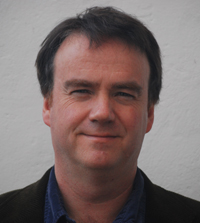Economic history: a reference for economics

Kevin H. O’Rourke
Kevin H. O’Rourke is the Chichele Professor of Economic History at All Souls College at University of Oxford and director of Centre for Economic Policy Research’s Economic History Program. He also serves as a fellow of the British Academy, a member of the Royal Irish Academy and a research associate of the National Bureau of Economic Research. As an expert in economic history, O’Rourke is particularly interested in the intersection of economic history and international economics, especially international trade. Among his many publications, Globalization and History (co-authored with Jeffrey G. Williamson) and Power and Plenty: Trade, War and the World Economy in the Second Millennium (co-authored with Ronald Findlay) are recognized as landmarks in the field. In August, WAN’s Zheng Ou spoke with Kevin H. O’Rourke about the place of economic history in economics, and its relevance to the pressing issues in the global economy today.
Q: Where does economic history fit in the study of economics?
A: Economic history used to have a central place in Western undergraduate and graduate programs in economics. In recent years however it has been pushed to the side as programs increasingly emphasize mathematical modeling techniques and statistical techniques. In part some faculty members may not see the point of economic history courses, and in part graduate students may see them as a distraction from acquiring the skills that they need to get a job.
It is important that economics students learn modeling and statistical techniques, but it is also important that they learn something about the real world which they are supposed to be modeling and analyzing. Economic history is essential here. It teaches them about how economies have evolved over the longer run; it gives them a sense of perspective and context. In a country like China, economic history, which has a lot to say about long run growth, development, and structural change, is obviously very useful, but it is important for economics students everywhere.
Q:How can awareness of economic history help students better understand the current state of the economy?
A: Most obviously, it makes students to recognize that major discontinuities in economic performance and economic policy regimes have occurred many times in the past, and may therefore occur again in the future. These discontinuities have often coincided with economic and financial crises, which therefore cannot be assumed away as theoretically impossible. Moreover, even once the current economic and financial crisis has passed, the major long run challenges facing the world will still remain. Among these is the question of how to rescue billions of our fellow human beings from poverty that would seem intolerable to those of us living in the OECD. And yet such poverty has been the lot of the vast majority of mankind over the vast majority of history: what is surprising is not the fact that “they are so poor”, but the fact that “we are so rich”. In order to understand the latter puzzle, we have to turn to the historical record. What gave rise to modern economic growth is the question that prompted the birth of economic history in the first place, and it remains as relevant today as it was in the late nineteenth century.
Q: How have economic historians been able to guide policy during the global financial?
A: Since 2008 it has become apparent that a lot of mainstream macroeconomists have very little that is useful to say about the financial and economic crisis hitting the West. In contrast, economic historians like Barry Eichengreen or Christina Romer were very quick to grasp the enormity of what was happening, and to suggest radical economic measures. If the U.S. recovery has been quicker than the European one, this has a lot to do with the superior policies pursued in the U.S., and it has helped that Ben Bernanke is someone who knows an awful lot about the Great Depression.
Q: One of the points you’ve emphasized in the past is that economic history is an empirical endeavor. Do you think it ever loses the ability to focus on big events (specific cases) at the expense of theory?
A: I mean that economic historians’ focus is on explaining real events that happened in the real world, and that if particular theories don’t fit the facts of a particular historical episode, we look elsewhere for explanations. This is how all economic research should proceed of course, but it doesn’t always. Studying economic history is a good way of helping students to see that you can’t necessarily impose one model on all situations. It is a way of getting them into good habits. Besides, economic history is a great way of convincing undergraduates that the theory they are learning in their micro and macro classes is useful in helping them make sense of the real world.
The Chinese version appeared in Chinese Social Sciences Today, No. 483, Aug. 2, 2013
Edited by Zhang Mengying
The Chinese link:
